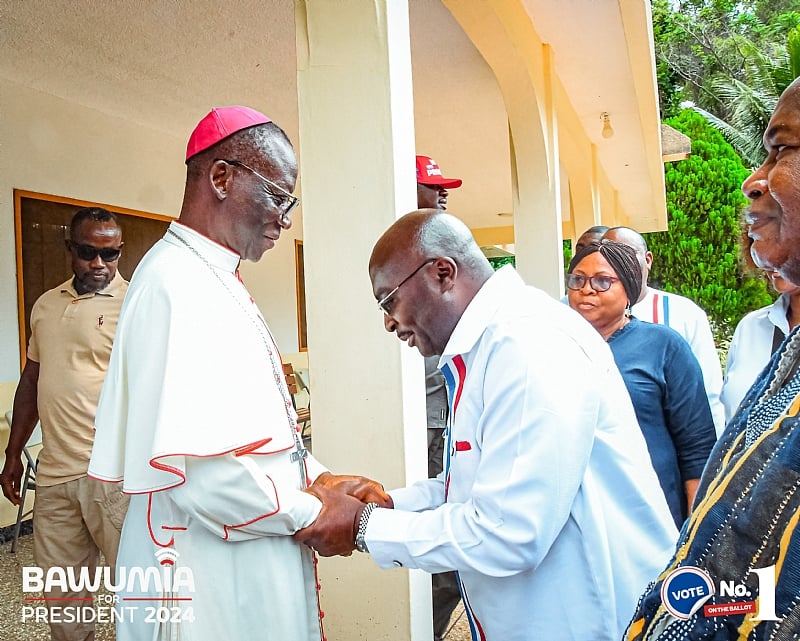In a significant demonstration of solidarity between government and religious institutions, Vice President Dr. Mahamudu Bawumia recently emphasized the crucial role of churches and faith-based organizations in national development. His remarks were made during a courtesy visit to the Catholic Bishop of the Sunyani Diocese, Most Rev. Mathew Kwesi Gyamfi, who also serves as the President of the Catholic Bishops Conference. This visit, which took place prior to Dr. Bawumia’s campaign activities in the Bono Region, reflects his intent to forge stronger relationships with faith groups and to acknowledge their substantial contributions to society. By recognizing the church as a pivotal development partner, Dr. Bawumia seeks to enhance collaborative efforts aimed at societal improvement and spiritual guidance, ultimately fostering a more united approach to national progress.
Dr. Bawumia articulated his belief that faith-based organizations, particularly the church, have historically made significant contributions to various sectors, including education and healthcare. For instance, he pointed out that the church has established numerous schools and hospitals that often surpass those built by international development partners. Specifically, he cited the Catholic Church’s establishment of St. James Seminary, deemed one of the best senior high schools in West Africa, as a prime example of the church’s commitment to education in the Bono Region. However, he highlighted an inequity in the tax privileges granted to international development partners that are not afforded to the church, calling for legislative measures to ensure the church receives similar benefits to those available to international donors.
On the environmental front, Dr. Bawumia addressed the pressing issue of illegal mining, also known as galamsey, which poses significant threats to Ghana’s natural resources. He reassured Bishop Gyamfi that his administration, if elected, would prioritize environmental protection, working collaboratively with religious organizations to instill a sense of environmental responsibility among citizens. He underscored the need for a cooperative approach between the government and the church to address these urgent environmental challenges, thereby leveraging the moral and ethical influence of faith-based organizations to foster stewardship over the nation’s resources.
Moreover, the Vice President expressed his vision for a transparent and accessible government, asserting that all faith-based organizations, including the Catholic Church, would have open access to his administration. He advocated for the inclusion of religious leaders in the decision-making processes regarding development initiatives. Dr. Bawumia emphasized that the government would recognize these organizations as vital partners, not only in policymaking but also in executing programs designed to enhance community welfare, education, and overall societal development. This openness aims to build trust and cooperation, fostering a close-knit relationship between the state and religion in efforts to address community issues.
In response to Dr. Bawumia’s visit, Bishop Gyamfi expressed heartfelt gratitude, noting the historic nature of such a visit from a sitting Vice President. He praised Dr. Bawumia’s initiative to strengthen ties with religious institutions, highlighting the church’s commitment to collaborating with the government in promoting inclusive development initiatives. The Bishop reiterated the church’s dedication to uplifting community standards, advocating for equitable growth and social justice in alignment with national development goals. His positive remarks reflect optimism about the potential for fruitful cooperation between the church and government to effect real change in society.
The overall exchange between Dr. Bawumia and Bishop Gyamfi embodies a mutual recognition of the pivotal role that faith-based organizations can play in driving national development forward. By highlighting the contributions of religious institutions in areas such as education and social welfare, while also advocating for equitable treatment in terms of resources and recognition, the Vice President is setting the stage for a collaborative model of governance. This partnership could facilitate more sustainable and inclusive growth, affirming the church’s integral role in shaping societal values and community resilience as Ghana progresses into a new era of development.














